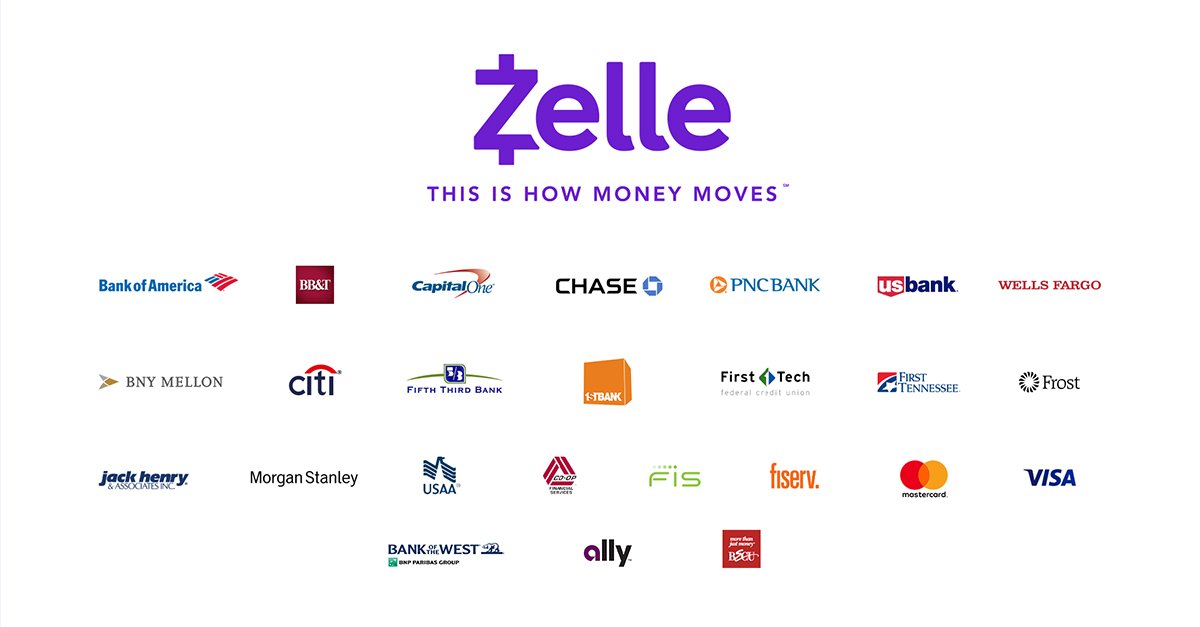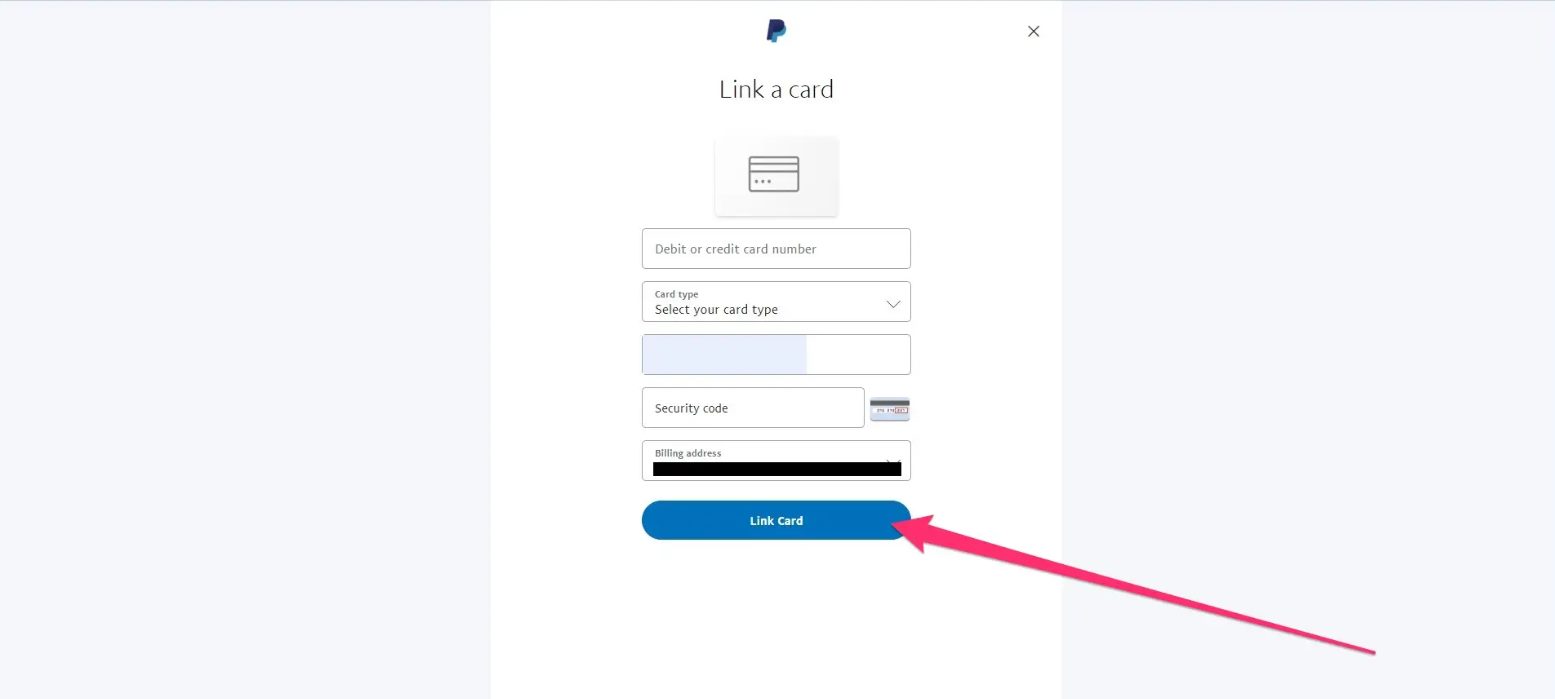Introduction
Online banking has emerged as a revolutionary way for individuals and businesses to manage their financial transactions. With the advancements in technology, traditional banking methods are being rapidly replaced by convenient and efficient online banking services. This digital transformation has made it possible for people to access and control their finances anytime, anywhere, with just a few clicks.
Gone are the days when you had to make a physical visit to your bank and wait in long queues to carry out basic banking tasks. Nowadays, you can simply log in to your online banking portal and carry out a wide range of transactions, from checking your account balance to transferring funds, paying bills, and even applying for loans, with ease and convenience.
Technology has made our lives simpler, and online banking is a prime example of this. The ability to manage your finances at your fingertips saves both time and effort, allowing you to focus on other important aspects of your life. In this article, we will explore the various reasons why online banking is considered to be a good option for individuals and businesses alike.
So, whether you are a busy professional, a small business owner, or a tech-savvy individual, online banking offers numerous benefits that make managing your finances a breeze.
Convenience
One of the primary advantages of online banking is the unparalleled convenience it provides. With online banking, you no longer need to adhere to the limited banking hours or rush to the bank before it closes. Instead, you have round-the-clock access to your accounts, allowing you to manage your finances at your own pace and according to your own schedule.
Whether you’re at home, in the office, or on the go, you can simply log in to your online banking portal and carry out transactions effortlessly. You can view your account balance, transfer funds between accounts, pay bills, and even apply for new services right from the comfort of your own device. Online banking eliminates the need for physical visits to the bank, freeing up your time for more important tasks.
Furthermore, online banking offers the convenience of accessing multiple accounts from a single platform. Whether you have a checking account, savings account, or credit card, you can conveniently manage all of your accounts through a single online banking portal. This eliminates the hassle of logging in to multiple platforms or visiting multiple banks, making your financial management streamlined and efficient.
Online banking also allows you to receive electronic statements and notifications directly in your inbox, eliminating the clutter of paper statements and providing easy access to your transaction history. You can review and download your statements anytime you need them, saving you the trouble of storing and organizing physical documents.
In addition to the convenience of managing your accounts, online banking also offers a range of self-service options. You can set up automatic payments for recurring bills, schedule future transfers, and even set savings goals with automated transfers. These features enable you to take control of your financial life and make proactive decisions without relying on the assistance of bank personnel.
In summary, online banking offers unparalleled convenience by providing 24/7 access to your accounts, the ability to manage multiple accounts from a single platform, receiving electronic statements and notifications, and empowering you with self-service options. It truly simplifies your financial management and saves you valuable time and effort.
Accessibility
Accessibility is another key reason why online banking has become increasingly popular among individuals and businesses. Unlike traditional banking methods that require you to physically visit a branch, online banking allows you to access your accounts from anywhere in the world, as long as you have an internet connection.
Whether you’re traveling abroad, on a business trip, or simply away from your hometown, online banking ensures that you remain connected to your finances. You can check your account balance, monitor transactions, and even make payments or transfers, all with the convenience of a few taps on your smartphone or clicks on your computer.
Moreover, online banking is not limited to just desktop or laptop devices. Most banks have developed user-friendly mobile applications that are compatible with smartphones and tablets, catering to the needs of users who prefer accessing their accounts on the go. These mobile apps provide a seamless and optimized experience, allowing you to access your accounts with ease and security, regardless of your location.
The accessibility of online banking extends beyond just managing your accounts. It also provides access to a wide range of banking services and products. Whether you want to apply for a loan, open a new account, or explore investment options, online banking platforms offer a comprehensive suite of services to meet your financial needs.
Furthermore, online banking ensures accessibility for individuals with physical disabilities or limited mobility. The ability to manage finances from the comfort of their own homes eliminates the need for them to navigate crowded banking halls or rely on assistance for basic banking tasks. This promotes inclusivity and independence in financial management.
In summary, online banking offers unparalleled accessibility by allowing users to access their accounts and carry out transactions from anywhere in the world, be it through desktop platforms or mobile applications. It also provides access to a wide range of banking services and products, catering to the diverse needs of individuals and businesses. Online banking ensures that financial management is not limited by physical boundaries, offering convenience and flexibility to users worldwide.
Time-saving
Time is a valuable resource, and online banking helps in saving a significant amount of it. With traditional banking methods, you often have to allocate a considerable portion of your day for banking tasks. This includes traveling to the bank, waiting in long queues, and dealing with paperwork. Online banking eliminates these time-consuming activities and allows you to carry out banking tasks in a fraction of the time.
With online banking, you can complete transactions quickly and efficiently. Whether you need to transfer funds between accounts, pay bills, or make online purchases, the process is streamlined and can be done with just a few clicks. This saves you the hassle of writing checks, filling out forms, and mailing them, significantly reducing the time taken for these tasks.
The time-saving aspect of online banking is particularly advantageous for businesses. Business owners can easily manage payroll, make payments to vendors, and reconcile accounts, all in a matter of minutes. This allows them to focus on other aspects of running their business, increasing productivity and efficiency.
Furthermore, online banking provides real-time access to your financial information. You can instantly view your account balance, monitor transactions, and track expenses, without the need to wait for monthly statements or visit the bank. This real-time tracking allows you to stay on top of your finances and make informed decisions without any delays.
In addition, online banking offers a quick and secure way to access your account history and transaction details. Instead of sifting through stacks of paper statements or manually reconciling your accounts, you can simply log in to your online banking portal and download transaction records with just a few clicks. This saves time and effort, especially during tax season or when preparing financial reports.
Lastly, the time-saving aspect of online banking extends to customer support. Most online banking platforms offer live chat support or 24/7 customer service helplines, allowing you to get assistance and resolve issues without having to physically visit a bank branch. This saves valuable time and ensures that you can get the help you need, whenever you need it.
In summary, online banking saves time by eliminating the need for physical visits to the bank, streamlining transactions, providing real-time access to financial information, simplifying account tracking, and offering convenient customer support. By freeing up your time, online banking allows you to focus on other important aspects of your life and increases overall efficiency in managing your finances.
Enhanced Security
One of the key concerns when it comes to managing finances is ensuring the security of your personal and financial information. Online banking addresses this concern by implementing robust security measures to protect your sensitive data and transactions.
Firstly, online banking platforms use encryption technology to secure your data. This means that your information, such as account numbers, passwords, and transaction details, is encoded and sent through a secure connection. This encryption makes it extremely difficult for any unauthorized individuals to access or intercept your information.
In addition, online banking platforms often require multiple layers of authentication to ensure secure access to your accounts. This can include the use of strong passwords, security questions, and one-time verification codes sent to your registered mobile devices. These authentication measures add an extra layer of security and make it significantly harder for hackers to gain unauthorized access to your accounts.
Furthermore, online banking platforms continuously invest in advanced security systems and employ fraud detection mechanisms. These systems monitor your account activity for any suspicious transactions or unauthorized access attempts. If any such activity is detected, the bank’s security team is notified, and appropriate measures are taken to protect your account.
Another security feature provided by online banking is transaction verification. Whenever you initiate a transaction, such as transferring funds or making a payment, you are typically required to confirm the details of the transaction before it is processed. This ensures that you have full control over your financial transactions and helps in preventing any unauthorized or mistaken transactions.
Beyond the security measures implemented by the online banking platforms themselves, your liability for fraudulent transactions is typically limited. Most banks offer a zero-liability policy, meaning that if you report any unauthorized transactions promptly, you will not be held responsible for the losses. This provides peace of mind and ensures that your finances are protected.
Lastly, online banking offers the convenience of electronic alerts and notifications. You can set up customized alerts for various activities on your accounts, such as large withdrawals or unusual spending patterns. These alerts serve as an early warning system, allowing you to quickly identify and report any suspicious activity on your accounts.
In summary, online banking provides enhanced security measures such as encryption, multi-factor authentication, fraud detection, transaction verification, and zero-liability policies. These measures protect your sensitive information and transactions, providing you with peace of mind. Additionally, the ability to set up customized alerts adds an extra layer of security and helps in proactively monitoring your accounts for any unauthorized activity.
Real-time Tracking
Keeping track of your finances is essential for effective financial management, and online banking excels in providing real-time tracking capabilities. With online banking, you have instant access to your account information, allowing you to monitor your transactions and stay updated on your financial standing.
One of the key benefits of real-time tracking is the ability to view your account balance at any given moment. Online banking platforms provide you with up-to-date information on your available balance, ensuring that you have a clear understanding of your financial situation. This allows you to make informed decisions regarding your spending and saving habits.
Additionally, online banking enables you to monitor your transactions in real-time. As soon as a transaction occurs, it is immediately reflected in your account history. This level of visibility allows you to keep track of your expenses, identify any unauthorized charges, and quickly detect any errors or discrepancies. Real-time transaction tracking eliminates the need to wait for monthly statements, providing you with timely and accurate information.
Moreover, online banking platforms often categorize your transactions automatically, helping you organize and analyze your spending patterns. You can view detailed breakdowns of your expenses in various categories, such as groceries, bills, entertainment, and more. This feature allows you to get a comprehensive overview of your spending habits and identify areas where you can make adjustments to achieve your financial goals.
Real-time tracking also extends to pending transactions. If you initiate a transfer or make a payment through online banking, you can see the status of these transactions in real-time. This helps you plan your finances effectively, ensuring that you have a clear picture of your pending financial commitments.
Beyond tracking your own transactions, online banking also provides real-time tracking for incoming payments and deposits. This is particularly useful for businesses that need to manage their cash flow effectively. With online banking, you can track customer payments, monitor invoice statuses, and ensure that your cash flow remains healthy.
The ability to track your finances in real-time not only enhances your visibility and control but also helps in preventing fraudulent activity. You can quickly identify any unauthorized transactions and take immediate action to report and resolve them. Real-time tracking acts as a proactive tool in safeguarding your financial well-being.
In summary, online banking offers real-time tracking capabilities, allowing you to access up-to-date information on your account balance, monitor transactions as they occur, categorize expenses, track pending transactions, and manage incoming payments effectively. Real-time tracking empowers you with the visibility and control needed to make informed financial decisions and protect yourself against fraudulent activity.
Cost-effective
Cost-effectiveness is a significant advantage of online banking that benefits both individuals and businesses. By opting for online banking, you can enjoy several cost-saving benefits associated with managing your finances efficiently.
First and foremost, online banking eliminates the need for paper-based transactions and documentation. With traditional banking methods, you may incur expenses related to checkbooks, deposit slips, and statements, not to mention the costs of mailing and delivering paper documents. By transitioning to online banking, you can significantly reduce these costs and contribute to a more sustainable environment.
In addition to the direct savings on paper-related expenses, online banking also eliminates the need for physical visits to the bank. This means you can save money on transportation costs, including fuel expenses or public transportation fees. Furthermore, you can avoid potential parking charges or other incidental costs that may be associated with visiting a physical bank branch.
Online banking also offers cost-saving benefits through increased efficiency. By providing user-friendly interfaces and streamlined processes, online banking platforms enable quick and hassle-free transactions. This efficiency reduces the amount of time and effort required to carry out banking tasks, resulting in increased productivity and cost savings for both individuals and businesses.
Another aspect that contributes to the cost-effectiveness of online banking is the availability of online bill payment services. With this feature, you can easily and conveniently pay your monthly bills online, without the need for writing physical checks or using postal services. By setting up recurring payments or scheduling one-time payments, you can avoid late payment fees and potential penalties.
For businesses, online banking offers even more cost-saving opportunities. It provides quicker and more efficient methods for managing payroll, making vendor payments, and processing financial transactions. By automating these processes through online banking, businesses can reduce manual errors, minimize administrative costs, and improve overall financial management efficiency.
Moreover, online banking often offers competitive interest rates and fee structures compared to traditional banking. With research and comparison, you can find online banking services that provide higher interest rates on savings accounts or lower fees for transactions and services. This can lead to significant savings in the long run.
Lastly, online banking platforms often provide financial management tools and resources that help individuals and businesses track their expenses, set budgets, and plan for future financial goals. By utilizing these tools effectively, you can further optimize your financial management and make informed decisions that align with your financial priorities.
In summary, online banking is a cost-effective solution that eliminates paper-based expenses, reduces transportation costs, increases efficiency, offers online bill payment services, provides competitive interest rates and fees, and offers financial management tools. By embracing online banking, you can save money, streamline your financial processes, and make the most of your financial resources.
Easy Organization
Online banking simplifies financial organization by providing easy and efficient methods for managing your accounts and transactions. With user-friendly interfaces and intuitive features, online banking platforms make it convenient to organize your finances effectively.
One of the key benefits of online banking is the ability to view and track your transaction history. Instead of sifting through stacks of paper statements or manually recording transactions, you can access your account history digitally with just a few clicks. This makes it easy to review your past transactions, identify any discrepancies, and track your spending habits.
Moreover, online banking platforms often offer advanced search capabilities, allowing you to quickly find specific transactions based on dates, descriptions, or amounts. This feature comes in handy when you need to refer to a specific transaction detail or reconcile your accounts.
Online banking also provides easy access to digital statements and documents. Instead of receiving paper statements in the mail, you can opt for electronic statements that are securely stored in your online banking portal. These digital statements can be accessed and downloaded whenever you need them, making it convenient for record-keeping purposes or when filing taxes.
In addition to transaction history and digital statements, online banking allows you to easily organize your accounts. Whether you have multiple checking accounts, savings accounts, or credit cards, you can view and manage all of them from a single online banking platform. This eliminates the need to login to multiple platforms or visit multiple branches, saving you time and effort.
Furthermore, online banking often offers the ability to customize your account settings and preferences. You can personalize your dashboard, arrange account tiles according to your preference, and even set up alerts for specific account activities. These customization options allow you to tailor your online banking experience to suit your organization needs and optimize your financial management.
Online banking platforms also offer features such as tagging or categorizing transactions. You can assign labels or create categories for your transactions, making it easy to track and analyze your spending patterns. This feature enables you to gain insights into your financial habits and make informed decisions about budgeting and saving.
Lastly, online banking makes it convenient to transfer funds between accounts or make payments to other individuals or businesses. You can set up recurring transfers or schedule future payments, eliminating the need for manual intervention. This automated process ensures that your finances are organized and payments are made on time.
In summary, online banking offers easy organization through features such as transaction history tracking, digital statements, account consolidation, customizable settings, transaction tagging, and automated transfers. By employing these features, online banking platforms make it effortless to manage and organize your finances, giving you better control and visibility into your financial situation.
Multiple Banking Services
Online banking offers a wide range of banking services that go beyond basic account management. With just a few clicks, you can access a plethora of services and products that cater to your diverse financial needs.
One of the key advantages of online banking is the ability to apply for various banking products and services directly from the comfort of your own device. Whether you’re looking to open a new savings account, apply for a credit card, or even explore investment opportunities, online banking platforms provide a seamless and convenient application process.
Furthermore, online banking allows you to easily access and manage loans. You can apply for personal loans, auto loans, or even mortgages online, saving you the hassle of visiting a physical bank branch and filling out lengthy paperwork. The online application process is streamlined, and you can receive quick decisions on your loan applications.
Additionally, online banking platforms often provide digital investment services. Through these services, you can explore and invest in a variety of financial instruments, such as stocks, bonds, mutual funds, and more. Online investment tools and resources are available to help you make informed investment decisions and track the performance of your investment portfolio.
Online banking also offers comprehensive bill payment services. With online bill pay, you can easily pay your monthly bills, set up recurring payments, and schedule payments in advance. This eliminates the need for writing paper checks or manually visiting biller websites, making bill payment a hassle-free process.
Moreover, online banking platforms often integrate with other financial services and applications, providing seamless access to additional banking services. For example, many online banking platforms offer person-to-person payment services, allowing you to send and receive money from friends and family instantly. Some online banking platforms also offer integration with budgeting apps or financial management tools, making it easier to track and analyze your spending patterns.
Online banking also caters to the needs of businesses by providing a range of business banking services. Business owners can access features such as online invoicing, payroll management, and merchant services. These services streamline financial operations, improve cash flow management, and enhance overall business efficiency.
Furthermore, online banking platforms often offer additional benefits and rewards for their customers. This can include higher interest rates on savings accounts, cashback rewards on credit card purchases, or discounts on banking services. These perks provide added value to your banking experience and incentivize you to continue using online banking services.
In summary, online banking provides access to multiple banking services, including account applications, loans, investment options, bill payment services, person-to-person payments, business banking services, and rewards programs. The availability of these services through online banking platforms allows you to conveniently meet your financial needs and access a comprehensive suite of banking products and tools.
Conclusion
Online banking has revolutionized the way we manage our finances, offering a range of benefits that make it a preferred choice for individuals and businesses alike. The convenience of 24/7 access, the accessibility from anywhere in the world, and the time-saving nature of online banking have transformed the traditional banking landscape.
Online banking provides enhanced security measures, ensuring the protection of sensitive information and transactions. With features like encryption, multi-factor authentication, and real-time tracking, individuals can have peace of mind while conducting their financial activities online.
Additionally, online banking offers easy organization through features such as transaction history tracking, digital statements, account consolidation, and customizable settings. These features make it effortless to manage and organize your finances, allowing you to stay on top of your spending and financial goals.
Another significant advantage of online banking is the availability of multiple banking services and products. From applying for loans and credit cards to exploring investment opportunities and managing business finances, online banking platforms provide a comprehensive suite of services to cater to diverse financial needs.
Moreover, online banking is cost-effective, with savings on paper expenses, transportation costs, and increased efficiency. By embracing online banking, individuals and businesses can optimize their financial resources and streamline their financial management processes.
In conclusion, online banking offers unparalleled convenience, accessibility, time-saving capabilities, enhanced security measures, easy organization, a wide range of banking services, and cost-effectiveness. It has transformed the way we manage our finances, delivering efficiency, flexibility, and peace of mind. As technology continues to advance, online banking will likely become even more integrated into our daily lives, reshaping the future of banking and financial management.

























